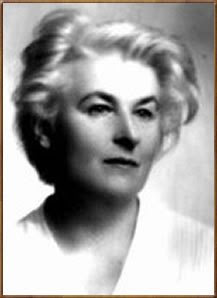It is revelatory.
This is sophisticated and powerful poetry without the rhetorical embellishment that characterizes so much of what passes as poetry. This is poetry that is purposeful, direct, simple and with a profound reverence for life.
Anna Swir was a Polish poet (1909-1984) whose poetry was shaped by her experience in the anti-Nazi resistance in Poland and the Warsaw Uprising during the Second World War.
Swir was arrested and faced a Nazi firing squad during the war, waiting 60 minutes to be executed. As well as writing poetry for Polish resistance underground publications, Swir also worked as a military nurse, caring for the wounded during the Warsaw Uprising.
Many of her poems record the experiences and ravages of war, although it was 30 years after the war before Swir would write and publish the poems about her wartime experience.
As one reviewer notes those wartime experiences changed her poetry profoundly, bringing a concern for the value of the simplicity and immediacy of life.
He Was Lucky
An old man
leaves the house, carrying books.
A German soldier snatches the books
and throws them in the mud.
The old man picks up the books,
the soldier hits him in the face.
The old man falls,
the soldier kicks him and walks away.
The old man
lies in mud and blood.
Underneath he feels
the books.
A Conversation through the Door
At five in the morning
I knock on his door.
I say through the door:
In the hospital at Sliska Street
your son, a soldier, is dying.
He half-opens the door,
does not remove the chain.
Behind him his wife
shakes.
I say: your son asks his mother
to come.
He says: the mother won't come.
Behind him the wife
shakes.
I say: the doctor allowed us
to give him wine.
He says: please wait.
He hands me a bottle through the door,
locks the door,
locks the door with a second key.
Behind the door his wife
begins to scream as if she were in labor.
(Translated by Czeslaw Milosz and Leonard Nathan)
TO SHOOT INTO THE EYES OF A MAN
He was fifteen,
the best student of Polish.
He ran at the enemy
with a pistol.
Then he saw the eyes of a man,
and should’ve fired into those eyes.
He hesitated.
He’s lying on the pavement.
In her later works Swir writes explicitly about women's lives, women's bodies and their sexual lives. She writes with directness and intensity about the body as both an object of desire and of suffering. There are few poets who write as beautifully and directly about erotic love and the way desire shapes our lives.They didn’t teach him
in Polish class
to shoot into the eyes of a man.
I'll Open the Window
Our embrace lasted too long.
We loved right down to the bone.
I hear the bones grind, I see
our two skeletons.
Now I am waiting
till you leave, till
the clatter of your shoes
is heard no more. Now, silence.
Tonight I am going to sleep alone
on the bedclothes of purity.
Aloneness
is the first hygienic measure.
Aloneness
will enlarge the walls of the room,
I will open the window
and the large, frosty air will enter,
healthy as tragedy.
Human thoughts will enter
and human concerns,
misfortune of others, saintliness of others.
They will converse softly and sternly.
Do not come anymore.
I am an animal
very rarely.
(Translated by Czeslaw Milosz and Leonard Nathan)
The First Madrigal
That night of love was pure
as an antique musical instrument
and the air around it.
Rich
as a ceremony of coronation.
It was fleshy as a belly of a woman in labor
and spiritual
as a number.
It was only a moment of life
and it wanted to be a conclusion drawn from life.
By dying
it wanted to comprehend the principle of the world.
That night of love
had ambitions.



No comments:
Post a Comment